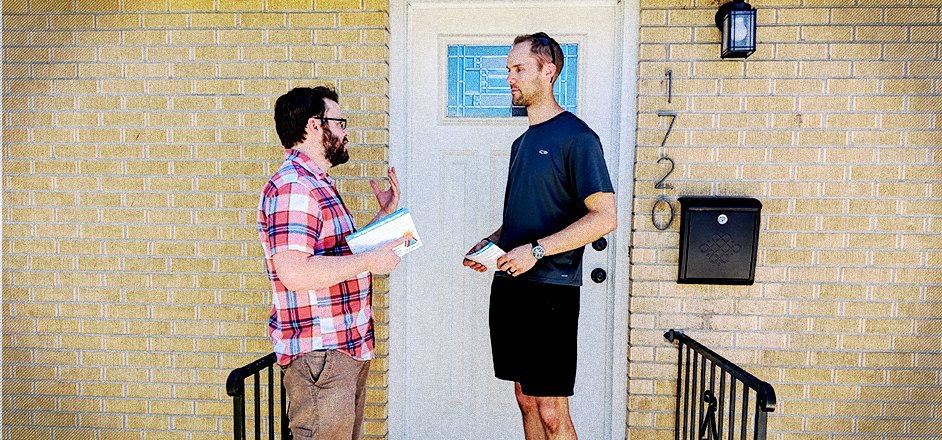Sunday morning, in his house on the edge of east Denver, an unexpected knock sounded on Toby Wellington's front door. Wellington might have expected Jehovah's Witnesses. Or Mormons.
Wellington opened the door to mushrooms.
"Denver is voting on the decriminalization of psilocybin," said DJ Reetz, before handing Wellington a flyer for I-301.
Reetz was one of a dozen or so dogged volunteers doorknocking for America's first psychedelic vote, reminding Denverites to turn in their ballots by Tuesday, May 7.
The vote is historic, and there's excitement online among drug policy enthusiasts and shroom-lovers. But Wellington, like much of Denver, hadn't heard of Initiative I-301. He said he doesn't use shrooms. But he's not opposed to Denver doing with mushrooms what it did with weed in 2005, becoming the first city to decriminalize.
"Doesn't bother me at all," said Wellington, a Denver-area native. And the vote didn't surprise him. "Colorado's getting more liberal, libertarian."
Over the morning, Reetz recited his spiel: mushrooms are physically safe, they're a "breakthrough therapy" for depression, and no one should go to jail for trying to heal themselves. Most voters nodded, thanked Reetz for the info, took a flyer.
Those who ventured an opinion said they were voting in favor: a shirtless guy with a Marine Corp skull tattoo. A sweaty dude in a Telluride hat who knew all about shrooms as medicine, saying, "I have issues myself."

In the seven or so weeks he's volunteered to go door-to-door, Reetz has received a positive reaction — way friendlier than when he was a paid political canvasser in November. "People aren't super excited about local politics," Reetz said. "They are super excited about the drugs they like."
Despite national attention — even Fox News covered it — Decriminalize Denver has been run on a shoestring, with no billboards or TV ads. No big organization backs the effort; there are flyers in record shop windows, but you don't see many yard signs around.

Travis Fluck is Decriminalize Denver's campaign manager, and he's spent hours going door to door. He has good reason. In 2002, Fluck was busted with mycelium after Pennsylvania cops searched his house. He was charged with manufacturing a controlled substance and faced 19 years in prison, same as if he'd made meth.
A lawyer argued the sentence down to one month in jail. But the conviction "completely changed the trajectory of my life," Fluck said. As a felon, applying for jobs and school loans and apartments was daunting. "It took away a lot of options."
Fluck learned from the experience, and from the mushrooms. He wanted the Denver campaign not to be a "grassroots" effort, but to mimic fungus, to be a "mycelial web." Fluck calls volunteers "spores." "Mycelium search all over the territory to find out the food sources, and the paths of least resistance," Fluck said. The below-ground, "mycelial" work was the years of organizing, finding lawyers, political support, money, petition signatures. When conditions are right — wet enough, warm enough — a mushroom pops out of the ground. That's Tuesday's vote, Fluck said: "Millions of years of R&D have already been done before we got here."
Out on the street with Reetz, as a "spore," things were less headily theoretical, and doorknocking for a far-out cause wasn't easy. Reetz trudged up wheelchair ramps and through hedge rows, blew past No Soliciting signs and dodged yappy dogs nipping at his ankles, switched to Spanish when he needed to. Doors closed on him. He sweated. People who were clearly home pretended like they were not home.

In the past, he's had doors slammed in his face and been called "insane."
But Reetz called the gig "rewarding." Lots of people talk about ending the Drug War. Reetz was trying to do it — one knock at a time. He thinks the initiative will pass.




Leave a Reply